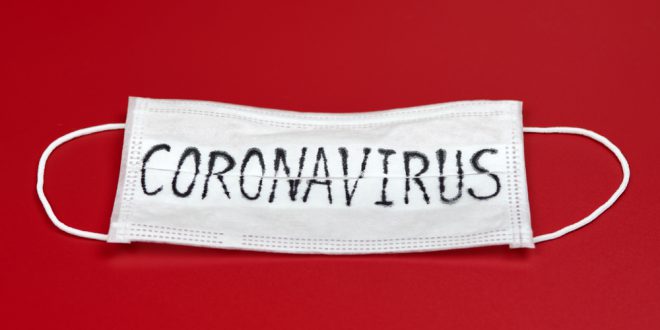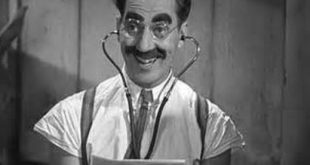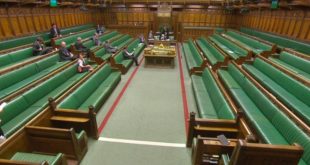Regulus Partners start the week by looking at hoe the UK gambling industry is adapting to the shake-up caused by the COVID-19 lockdown.
It is a paradox of these unusual times that the shuttering of large parts of the licensed gambling industry around the world should be accompanied by widespread expressions of concern about gambling harms. Fears of harm for those gambling in lockdown have led to regulatory tightening in some jurisdictions (e.g. Latvia, Lithuania, Spain and Belgium) and calls for similar actions in others.
The situation in Great Britain is illustrative of the issues. There is widespread agreement that a population lockdown presents a number of challenges for harm prevention programmes (see Winning Post 14 March) but so far little agreement on what the correct response should be. UK-focused trade association, the Betting & Gaming Council (the ‘BGC’) has issued a ten-point plan to act as a framework for the activities of its members (or at least, those still operating) at this time.
For some, this plan does not go far enough. Parliamentarians and anti-gambling activists have called for gambling advertising (a very broad term where online is concerned) to be banned, for bonuses to be prohibited, for maximum stakes of £2 and maximum daily deposits of £50 to be imposed and for means-testing to be introduced. In this article, we consider how the balance of risk may have changed in recent weeks and – in keeping with the spirit of the times – suggest a truly collaborative approach.
The present confinement to home of large swathes of the population seems likely to have all manner of consequences for our health – some good (physical exercise is reported to be on the rise) and some not so good. Online gambling at this time may provide a welcome diversion for some; for others, excessive engagement may contribute to negative health outcomes. Critically, how operators, content providers and even media companies behave toward their customers can shape these outcomes.
We know from research that isolation, boredom and anxiety are all factors that can motivate gambling. The British Gambling Prevalence Survey 2010 (the last major household prevalence survey in the jurisdiction to report on such matters) reported that 20% of gamblers (and 30% of those aged 16-24 years) gambled “to escape boredom or fill time”; 22% did so “to relax”; 6% claimed that it helped them when “feeling tense” and 41% were motivated by “a sense of achievement” from winning. The same survey revealed that those diagnosed as ‘problem gamblers’ (DSM-IV classification) were significantly more likely than ‘non problem gamblers’ or ‘at-risk gamblers’ to endorse ‘coping factors’ (i.e. the things that all humans do to deal with the stresses of life) as reasons for gambling.
At a time when online is pretty much the only game in town for gambling (as indeed it is for large parts of general retail and leisure), these insights suggest additional reasons for ethical operators to behave with heightened caution and tighter controls. However, this is only part of the story.
While online gaming (casino, slots, bingo, poker) may be expected to thrive under lockdown, the vast majority of businesses that offer gambling (terrestrial casinos, bingo clubs, arcades, betting shops, pubs, rails bookies and online sportsbooks) are in a state of suspended animation, unable to ply their trade. Some of these businesses will not survive lockdown, others will struggle to adapt in its aftermath due to altered customer routines and the pressures of economic recession. Regardless of the present fortunes of the online casino, the fact is that – at a population level – the level of gambling participation in Britain has fallen substantially over the last month and may be slow to return (see our previous blog and request our Covid 19 analysis deck for economic and financial details by sector).
According to the Health Survey for England 2018, 40% of adults in Great Britain had gambled (excluding National Lottery main draw) within the preceding 12 months. Of these, less than 3% stated that they participated in online gaming. The idea that more widespread use of online casino or bingo sites will offset the withdrawal from pretty much all other forms of gambling is patently absurd (we estimate a 60% decline in the size of the market, including the effects of substitution).
It is however harm – or the potential for harm – rather than participation that should concern us (even if some seem unable to distinguish between the two). It is widely accepted that online slots and casino (as distinct from sports betting) products are relatively high risk – both in terms of their structural characteristics (speed of play, repetition) and correlation with gambling disorder (8.5% of those who played such products were diagnosed as ‘problem gamblers’ within the 2018 Health Survey). Present concerns may be considered valid given the structural characteristics of the games being offered, the personal characteristics of some of those who may be playing them (bored, anxious, alone) and the situational risks of playing at home (although this is far more nuanced than commonly understood – as Dr Kahlil Philander suggested in his 2014 study of British gambling data, there are likely to be factors that make online gambling at home less risky).
However, we also know from prevalence surveys that gambling disorder is strongly correlated with multivariate engagement (i.e. the more types of gambling an individual engages with, the higher the probability that person will have gambling disorder). We cannot yet know what happens to behaviour when the range of gambling options is narrowed as dramatically and as suddenly as it has; but it seems overly simplistic to assume a uniform and unidirectional increase in risk.
Between the two gambling disorder screening instruments used in Great Britain (the DSM-IV and the PGSI), there may be said to be 16 different criteria (three items are common – more or less – to the two screens). Our rough conceptual analysis suggests that – among those who gamble – some of these items may increase, some may decrease while the effect on others seems ambiguous or unclear.
For example, endorsement of the diagnostic item ‘escape’ (defined as “gambling to escape life’s difficulties or to cheer up”) may increase for some during lockdown; and the same may be true for tolerance (“spending larger amounts on gambling in order to achieve the desired effect”). However, borrowing, selling items or stealing in order to fund gambling seem likely to decrease (from relatively low levels) as the opportunities to do these things diminish (given that the majority of reported gambling-related thefts appear to be from employers, it seems plausible that we may see a ‘furloughing effect’ in this particular domain – possibly accompanied by increased detection).
Gambling more than is affordable or in such a way as to create financial difficulties is likely to be influenced by individual circumstances (loss of income may increase risk for some; reduced household expenditure may reduce it for others). With certain items, it may be difficult to unpick the discrete effects of gambling from the general effects of social distancing (for example, ‘risk to significant relationship’ or employment). ‘Preoccupation’ (“spending a lot of time thinking about gambling”) might also increase for some during lockdown as people regret the loss of previously enjoyable pastimes – such as socialising with friends at the bingo club or watching and betting on football. ‘Criticism of gambling’ and ‘guilt’ (two items on the PGSI which seem likely to be related to one another), may be expected to skyrocket among those exposed to the more puritanical elements of our national press.
‘Restriction effects’ constitute a recognised but rarely discussed domain of gambling-related harm. This is a term from economics that describes the harm to consumers of not being able to engage in activities that they enjoy (and which do not negatively affect others). As the US economist, Professor Douglas Walker writes: “A significant cost can occur as a result of government restriction of… gambling. The fact that gambling is not universally available means that the government prevents mutually beneficial voluntary transactions from occurring. Even though gamblers face negative expected values from their activity, it must be the case that they expect to benefit with increased utility if they decide to place bets. When individuals are prevented from making what they see as mutually beneficial, voluntary transactions, they are harmed.”
One effect of the current lockdown is that it may serve to highlight through absence the psychosocial benefits of a wide range of leisure activities – including gambling. A critical test of the health of the regulated industry is the extent to which such absence does indeed make the hearts of consumers grow fonder – and, just as importantly, whether and how this is expressed.
In a similar way, a massive reduction in participation may help to isolate the role of excessive gambling in causing mental health or financial problems as distinct from excessive gambling being caused by such issues (or simply correlated). In order to understand all of these effects, some effort needs to be made to assess the present constriction in the availability of gambling. We have been presented with an unprecedented natural experiment to understand what happens when the things we do for kicks get taken away.
Concerns have been expressed about the risk to children at this time – stuck at home, bored and exposed to the malign influence of the gambling industry. Yet again, automatic claims of increased harm warrant examination.
For a start, it seems certain that gambling by minors is likely to have declined even more precipitously in recent weeks than it has done among adults. In ‘normal times’, the most common forms of gambling for 11-16-year-olds are private wagering between friends, playing fruit machines (for example in a seaside arcade), buying National Lottery tickets and playing card games with friends. It seems likely that the closure of schools along with large parts of the leisure industry will have removed at a stroke the overwhelming majority of opportunities for children to gamble.
Online gambling has relatively low levels of participation among children (1% or 2% on a past-week basis, depending on survey methodology); and this appears to be entirely facilitated (wittingly or unwittingly) by parents and guardians. Online gambling by minors has declined over the course of the last decade – and since last year we have much tighter age-gating. Moreover, given that concerns about children and online gambling have tended to focus on sports betting (curiously the absence of this since lockdown does not appear to have registered as a risk mitigation factor), it may be that online casino is a particularly marginal pursuit among minors.
While it seems plausible that risk of internet use disorder may increase during lockdown, no coherent argument has yet been proposed for why children in large numbers should suddenly take up online gambling if the activity has hitherto held little interest for them. Rather than assuming that extant risks become elevated at this time, it may be more instructive to think about new risks. For example, it seems plausible that the exposure of children to gambling in an esports context (in-game and/or streaming advertising as well as a betting on the events) may accelerate.
Survey data tells us that rates of ‘problem gambling’ and ‘at-risk gambling’ among children may also be expected to reduce. To illustrate this, we consider the two most commonly endorsed items in British surveys – ‘illegal acts’ and ‘risk to relationship’. In the 2019 Young People and Gambling Survey, the commission of ‘illegal acts’ was endorsed by 3.8% of those children who claimed to gamble (compared with just 0.2% of adult gamblers in the 2018 Health Survey for England). This is because the questionnaire used in the youth survey defines gambling with money not intended for that purpose (and specifically “dinner money or fare money”) as an illegal act. The second most commonly endorsed item – ‘risk to relationship’ – was endorsed by 2.5% of children (compared with 0.4% of adults) and covers “arguments with family/friends or others” and “missing school”. Given that school appears to play a large part in both youth gambling activity and what the diagnostic instrument considers potentially harmful behaviour, the current lockdown may reasonably be expected to lead to a significant reduction in both.
The differences between diagnostic criteria and endorsement rates for children and adults should also prompt some degree of scepticism when considering claims of youth gambling disorder. As Professor Jeffrey Derevensky, one of the world’s leading researchers on youth gambling has observed, the DSM-IV-J (the screening instrument used in the British surveys) is characterised by a number of “scoring errors” which “have resulted in over-estimates” (of ‘problem gambling’)‚ noting that “current screening instruments for youth lack sufficient construct validity” (in other words, they have been adapted from adult surveys rather than designed for children). The suggested equivalence between a child playing a game of cards at school with a portion of his dinner money and an adult stealing in order to play online casino is likely to strike many as distortive.
A temptation to map ‘old logic’ wholesale onto vastly altered territory should be avoided. Instead, consideration should be given to what risk factors in particular may have changed. For example, parental gambling may become more visible to minors under current conditions – with potentially long-term negative effects on health. A targeted programme of activity to raise awareness among parents of how their gambling can affect their children may be a suitable response to altered conditions (and long overdue given the apparent connivance by some in underage gambling). It should also be considered whether a fundamental change in the gambling landscape warrants a new approach to understanding and measuring harm.
We do need to be particularly cautious where children are concerned – but the precautionary principle applies to new regulatory interventions as well as to changes to the supply of gambling. As Gray, LaPlante and Nelson (2019) state: “In many cases, RG programmes that emerge from conventional wisdom about what should work are applied before evidence is collected, justified by the need to do something to control harmful gambling outcomes…Although it is possible that such RG programmes are useful and help moderate excessive gambling, such an approach risks potential harmful impacts of untested interventions, despite good intentions…The illogical assumption seems to be that, even though the hope and intention is for these programmes to have significant positive effects on human behaviour, they could not possibly have negative effects.”









